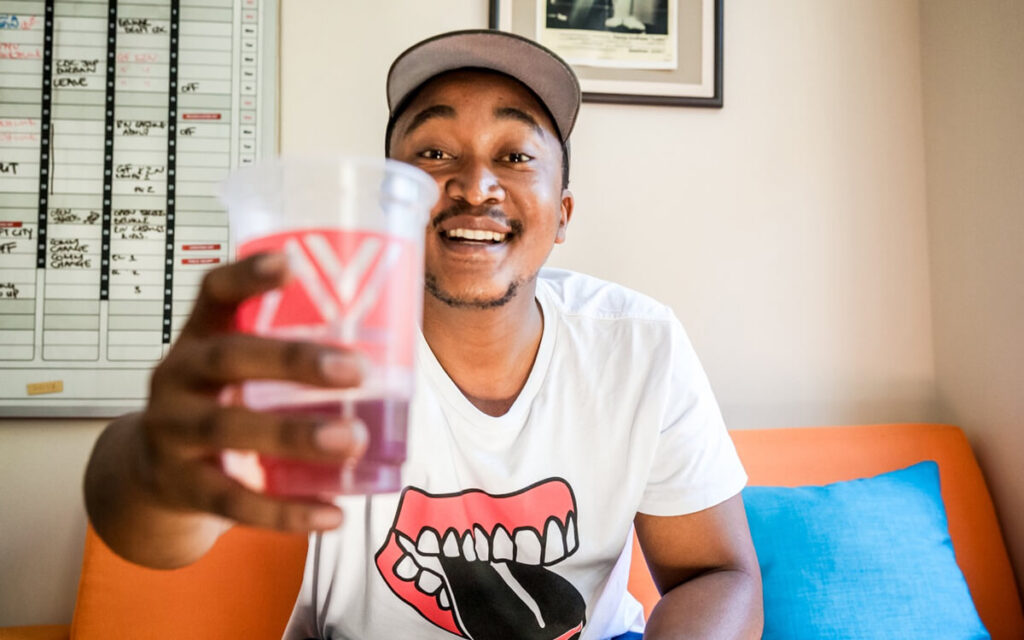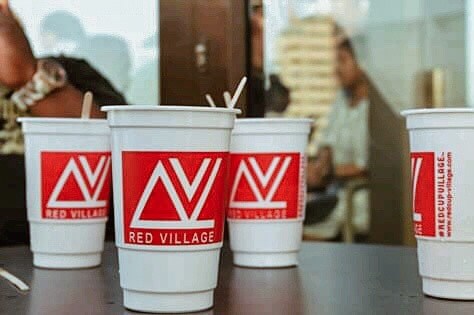
Luvuyo Ndiki, a South African entrepreneur, is planning to launch South Africa’s first biodegradable cup which will be made from corn starch and sugar cane. The cup, which is part of a new range of products, will launch in May this year.
Ndiki is the founder of Red Cup Village, a youth-focused creative events agency in Cape Town which, in addition to being the manufacturer of the biodegradable cup, provides a full suite of traditional and digital consumer engagement services. The agency was founded in 2014.
The agency has done work for the Upper Echelon Festival 2017, the Cape Town International Jazz Festival 2017, Kasi Experience and Africacom, among others.
The agency is also said to be the first to introduce the ubiquitous red plastic cup to the African market at festivals across the country.
The spark
Ndiki’s biodegrable cup invention was inspired by festival goers who queried how they could recycle their red plastic cups. “I realised that I wanted to do something that was for the future,” he told online news platform, IOL.
“It’s just more a conscious decision to create biodegradable products, especially looking at the issue of plastic in our environment.”
We are also aware that some hotels have given their suppliers until June 2019 to go biodegradable and we want to offer our cup as a solution
Ndiki who hails from Nqamakwe, Eastern Cape, says growing up in a village he had family members who worked in the corn fields, so it made sense to him to manufacture a product with the resources he had on hand.
“Business is all about making something out of nothing, plus I have always liked challenges from a young age and I am all about finding ways to make a difference with what I have.
Ndiki says they will be sourcing their material from local suppliers, including farmers in the Eastern Cape and Western Cape, as well as internationally, but they want to ensure that they are still able to create employment opportunities.
“I am developing my country because I am creating job opportunities to the people farming corn in rural areas.”
Ndiki adds, however that working with limited resources has not been without its challenges. “You need to be someone with self-belief and have the vision.”
“We will be working with local suppliers across South Africa and any other international supplier who might have the advance technology to improve our products while monitoring opportunities to create jobs and developing the economy.”
Communicating value
According to National Oceanic and Atmospheric Administration and the Woods Whole Sea Grant, the plastic that we use every day degrades at different rate, estimated time ranges from 10 to 1000 years. Foam plastic cups can take up to 50 years to biodegrade, while straws can take up to 200 years.
The impact of plastic waste on the environment was an influencing factor behind his decision to launch the cup, says Ndiki. “As a brand it was important to change the way our customers look at the environment because we do not want to see our cup in the landfill for our life time.
“More than making money it’s important to create a difference in society and leaving a legacy for the next generation. Red Cup Village wants to be a global leading lifestyle through innovative concepts and premium products.”
Ndiki hopes to venture into other biodegradable products like straws.
Count down to the launch
The entrepreneur said the new product is set to launch in May, which is the birthday month of his brand, Red Cup Village. “We want to launch to create large traction building up to December.
“We are also aware that some hotels have given their suppliers until June 2019 to go biodegradable and we want to offer our cup as a solution.”
Red Cup Village has three registered design patents with pending international trademarks.This means if a big corporation or small business would try to copy their design patent shape “we would be entitled to stop their use of the invention by seeking a legal injunction in the Supreme Court,” explains Ndiki.

About the cup:
– The corn starch and sugar cane are sourced from local farms which is then made into bioplastic which is PLA (Polylactic acid), from there it is made into a biodegradable cup and biodegradable products.
– Red Cup Village’s entire cup range is 100% recyclable and produced within the ISO 14000 world environmental management standards.
– It can be branded – recently Ndiki’s team worked with a local manufacturer to create at 100 test products which had a QR scan for people to download their fundraiser song.
– The cups range is currently stocked across more than 4,000 retail outlets, including the Red Cup Village website, and is used by over 300 venues nationwide.


